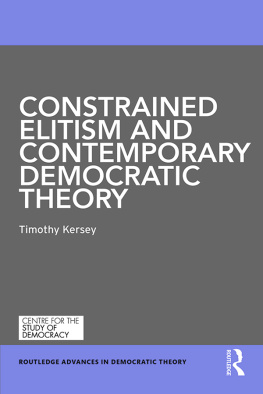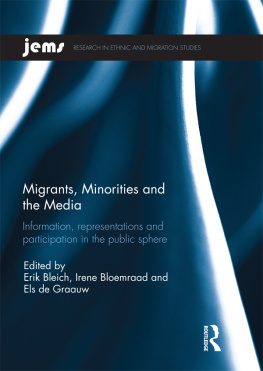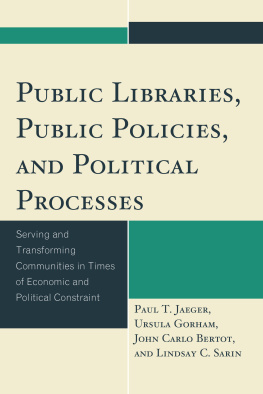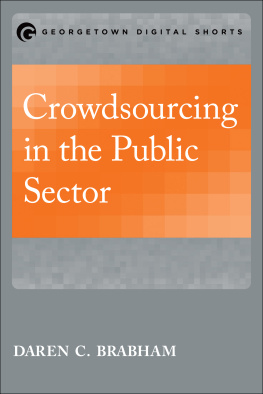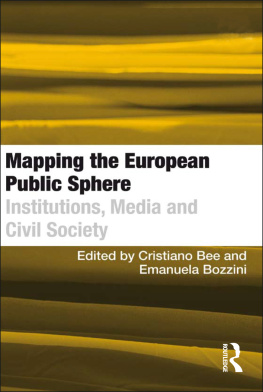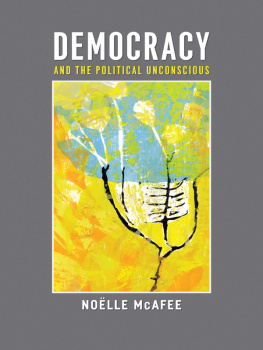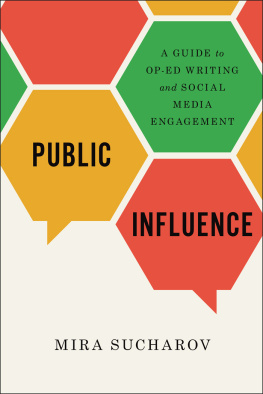There is no shortage of talk about the impact of the internet on democracy. Yet very little of this debate has seriously engaged with contemporary democratic theory. By developing an original theoretical framework for understanding new forms of communication and public participation, this book brings together previously insular perspectives in a way that both political theorists and communication scholars should welcome.
Kari Karppinen, University of Helsinki, Finland
Constrained Elitism makes a valuable contribution to the conceptualization of the liberal public sphere in relation to contemporary communicative practices. It offers a considered, informative, and persuasive account of how todays networked communications are helping to shape relationships between and amongst elites and non-elites within liberal democratic political systems. The central contribution of the book is to provide a general model of how networked communications are on the one hand enhancing the self-organizational capacity of publics, with the effect of increasing the pressure on elites by non-elite groups to address the latters concerns, and on the other hand providing a means for advancing the competitive advantage of particular elites.
Lincoln Dahlberg, University of Queensland, Australia
Constrained Elitism and ContemporaryDemocratic Theory
Today, examples of the publics engagement with political issues through commercial and communicative mechanisms have become increasingly common. In February 2012, the Susan G. Komen Foundation reversed a decision to cease funding of cancer screening programs through Planned Parenthood amidst massive public disapproval. The same year, restaurant chain Chic-fil-A became embroiled in a massive public debate over statements its President made regarding same-sex marriage. What exactly is going on in such public engagement, and how does this relate to existing ideas regarding the public sphere and political participation? Is the public becoming increasingly vocal in its complaints? Or are new relationships between the public and economic and political leaders emerging?
Timothy Kerseys book asserts that the widespread utilization of internet communications technologies, especially social media applications, has brought forth a variety of new communicative behaviors and relationships within liberal polities. Through quick and seemingly chaotic streams of networked communication, the actions of these elites are subject to increasingly intense scrutiny and short-term pressure to ameliorate or at least address the concerns of segments of the population. By examining these new patterns of behavior among both elites and the general public, Kersey unearths the implications of these patterns for contemporary democratic theory, and argues that contemporary conceptualizations of the public need to be modified to more accurately reflect practices of online communication and participation.
By engaging with this topical issue, Kersey is able to closely examine the self-organization of both elite and non-elite segments of the population within the realm of networked communication, and the relations and interactions between these segments. His book combines perspectives from political theory and communication studies and so will be widely relevant across both disciplines.
Timothy Kersey is part-time Assistant Professor of Political Science at Kennesaw State University. He received his Ph.D. in political science from Indiana University in 2011. His research interests include contemporary democratic theory, comparative political behavior, and the social and political effects of technology.
Routledge Advances in Democratic Theory
Edited by David Chandler and Paulina Tambakaki
(both University of Westminster)
Advisory Board: Benjamin Barber (City University of New York), Rajeev Bhargava (Centre for the Study of Developing Societies), Bhikhu Parekh (House of Lords), Fred Dallmayr (University of Notre Dame), John Keane (University of Sydney), Chantal Mouffe (University of Westminster).

Democracy is being re-thought almost everywhere today: with the widespread questioning of the rationalist assumptions of classical liberalism, and the implications this has for representational competition; with the Arab Spring destabilizing many assumptions about the geographic spread of democracy; with the deficits of democracy apparent in the Euro-zone crisis, especially as it affects Greece and Italy; with democracy increasingly understood as a process of social empowerment and equalization, blurring the lines of division between formal and informal spheres; and with growing demands for democracy to be reformulated to include the needs of those currently marginalized or even to include the representation of non-human forms of life with whom we share our planet.
Routledge Advances in Democratic Theory publishes state of the art theoretical reflection on the problems and prospects of democratic theory when many of the traditional categories and concepts are being reworked and rethought in our globalized and complex times.
The series is published in cooperation with the Centre for the Study of Democracy, University of Westminster, London, UK.
1. Nations and Democracy
New theoretical perspectives
Amanda Machin
2. Reclaiming Democracy
Judgment, responsibility and the right to politics
Edited by Albena Azmanova and Mihaela Mihai
3. Performing Citizenship
Social movements across the globe
Edited by Inbal Ofer and Tamar Groves
4. Constrained Elitism and Contemporary Democratic Theory
Timothy Kersey
Constrained Elitism and Contemporary Democratic Theory
Timothy Kersey
First published 2016
by Routledge
711 Third Avenue, New York, NY 10017
and by Routledge
2 Park Square, Milton Park, Abingdon, Oxon OX14 4RN
Routledge is an imprint of the Taylor & Francis Group, an informa business
2016 Taylor & Francis
The right of Timothy Kersey to be identified as author of this work has been asserted by him in accordance with sections 77 and 78 of the Copyright, Designs and Patents Act 1988.
All rights reserved. No part of this book may be reprinted or reproduced or utilized in any form or by any electronic, mechanical, or other means, now known or hereafter invented, including photocopying and recording, or in any information storage or retrieval system, without permission in writing from the publishers.
Trademark notice: Product or corporate names may be trademarks or registered trademarks, and are used only for identification and explanation without intent to infringe.
Library of Congress Cataloging in Publication Data
A catalog record for this book has been requested
ISBN: 978-0-415-72712-9 (hbk)
ISBN: 978-1-315-85563-9 (ebk)
To Julia and Xander
Contents
This project emerged from concepts developed during the writing of my doctoral dissertation, so I must first thank my committee members, Dr. William Scheuerman, Dr. Russell Hanson, Dr. Aurelian Craiutu and Dr. Ted Striphas for their ideas, comments and support during the dissertation process.

